Don Shebib’s Canadian working class poetry: Goin’ Down the Road (1970) and its sequel
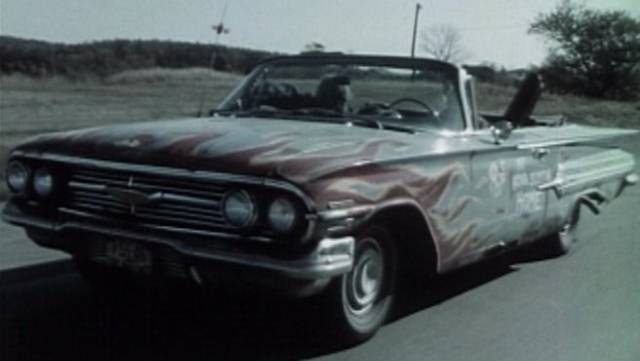
Don Shebib, who died on November 5 at the age of eighty-five, made his first (short) film in 1962 and his final feature (for Tubi) last year. In a sixty-year career he made a dozen features and many TV movies and series episodes, but his reputation rests largely on the three features he made in the early ’70s, beginning with the iconic Goin’ Down the Road (1970), quickly followed by Rip-Off (1971) and Between Friends (1973)[1], a pretty good showing for an independent Canadian filmmaker at the time. I never saw Rip-Off (1971), about four high-school friends faced with the uncomfortable challenge of what to do with their lives after graduation, and have only the vaguest recollection of Between Friends (1973), a downbeat story about a group of losers who cook up a plan to rob a mine in Sudbury. These three films present a grim picture of Canada in the wake of the ’60s, when dreams of change had collapsed in an aura of depression and failure.
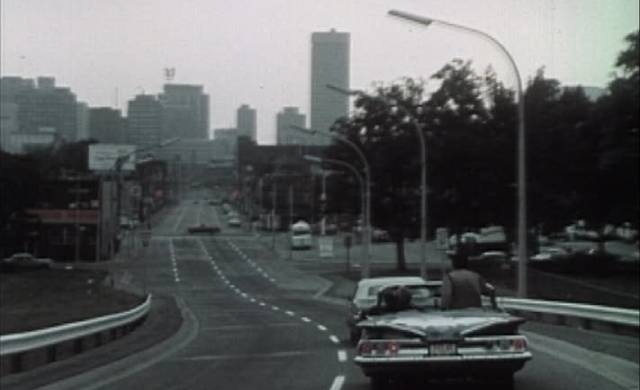
After a few television jobs, Shebib returned with what seemed like a very different movie. Second Wind (1976), while still set in Canada, seemed to be courting an American audience as it traded on the presence of Lindsay Wagner just as she was hitting it big on television with The Bionic Woman (1976-78). Protagonist Roger was played by James Naughton, older brother of better-known David Naughton, who a few years later starred in An American Werewolf in London (1981). Roger is an advertising executive whose dissatisfaction with family and career inspire a passion for running. This was the first of a number of projects in which Shebib displayed an interest in physical challenges … it was also the last of his movies that I saw.
With the news of Shebib’s death, I watched Goin’ Down the Road again. I hadn’t seen it in twenty years, since it was released on DVD, and was a little wary, but it holds up remarkably well, though I may now register the characters’ crude sexism more than I did back then. But that remains a clearly authentic aspect of the film’s working class milieu.
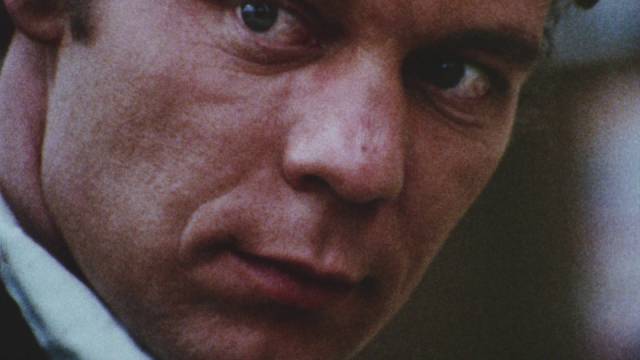
When I immigrated to Canada with my family at the age of eleven, we first settled in Newfoundland, so back in the early ’70s there was an immediate recognition of Pete (Doug McGrath) and Joey (Paul Bradley), a pair of aimless, unemployed men from an impoverished area of Nova Scotia, who head off to Toronto in Joey’s old convertible (hand-painted with splashes of colour and “My Nova Scotia Home” scrawled on the door); for many like them from the Maritimes, Canada’s largest city held out hope of good jobs and a comfortable life (it wouldn’t be long before these seekers headed further West to Alberta’s oil fields).
Naive, aimless and poorly educated, Pete and Joey quickly discover that their dreams are illusory. Pete, who believes the good life should be easy to achieve, applies for a job at an advertising agency – in an awkward and embarrassing interview, he offers as his qualification the fact that he’s seen lots of ads on TV and enjoyed them. The more realistic Joey gets a job in a warehouse and persuades Pete to join him. With a bit of money coming in, they move out of the Salvation Army hostel and into a cheap rented room. Pete chafes at this dead-end existence, but Joey settles in. He gets a girlfriend, Betty (Jayne Eastwood), but Pete brashly pursues the glamorous Nicole (Nathalie Christal), who works in the company office, managing to score a date which ends in a deflating dismissal on her doorstep.
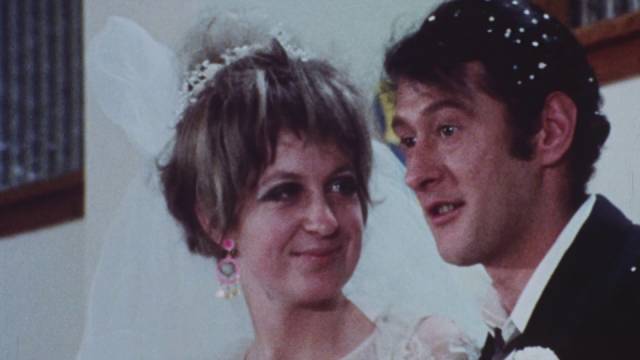
Joey gets Betty pregnant and marries her; Pete moves into their small apartment, resentful that his relationship with Joey has been sidelined. Friction and sniping are constant. The pair lose their jobs when the company lays off workers. Frustrated that things are going nowhere, wanting a taste of the better life they’d left home for, Pete and Joey shoplift groceries from a supermarket and get into a fight with the clerk. Joey cracks the man’s skull with a tire iron and they both realize they’ve reached a dead-end. Abandoning Betty to her family, they get into the unreliable convertible and head West, looking for yet another way out of the aimless life they really have no means of escaping.
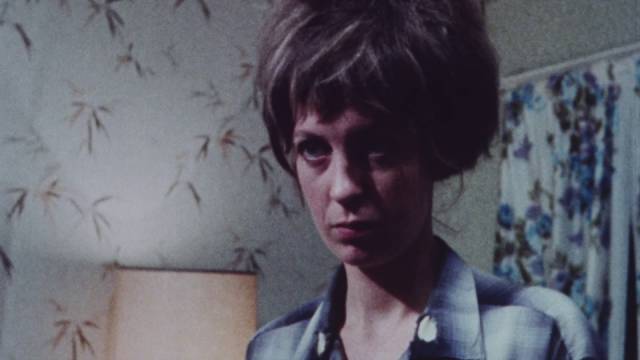
Shebib draws on the traditions of cinéma vérité and improvisation to create an unforced sense of documentary observation. The film follows Pete and Joey as they drift, ill-equipped to cope with life and resentful of the pressures they face – nothing in their background has prepared them for the responsibilities of adulthood and they can’t comprehend why anyone expects them to have the knowledge and skills necessary for the better kind of jobs they think they deserve. They’re a pair of aimless arrested adolescents, resentful and striking out at the world. As a counterweight to their crude objectification of women, Shebib pays close attention to the frequently unvoiced fear and resentment of Betty, whose own possibilities are equally limited, trapped by an unwanted pregnancy and marriage to a man she doesn’t seem to have much feeling for. But she tends to direct her resentment more towards Pete, whose presence seems to block any possibility of establishing a grounded relationship with Joey, who spends more energy trying to placate Pete than support her.
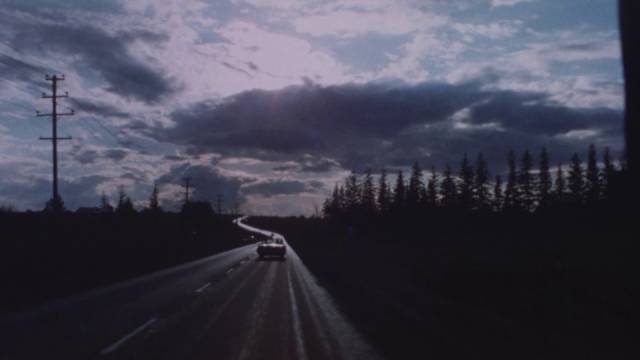
There’s a raw quality to Goin’ Down the Road, rooted in the authentic performances and Richard Leiterman’s cinematography, which is reminiscent of the early work of John Cassavetes. Despite the constant air of improvisation, Shebib says in a commentary and interview on the disk that screenwriter William Fruet had written a very tight script which, with only a few exceptions, was followed closely. This makes the performances even more impressive in their seeming spontaneity. Having made a number of documentaries in the preceding decade, with his first feature Shebib followed a well-established tradition growing out of the influence on Canadian cinema of the National Film Board which emphasized social realism, and created what may be the defining film of that tradition and one of this country’s great classics.
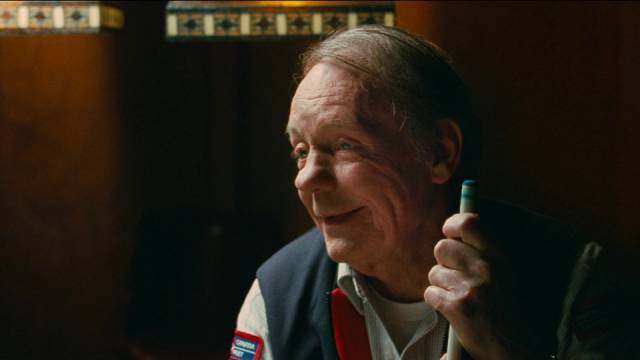
Four decades later, in his early seventies, Shebib revisited these characters in an unexpected sequel called Down the Road Again (2011), with three key members of the cast returning for a story which not only tells what happened to them after the first film’s events, but reaches back to offer an explanation for those events and to explain the fateful decisions made by Joey and Pete. As Paul Bradley had died in 2003, the sequel’s narrative hinges of Joey’s death and the revelation of long-buried secrets.
Not surprisingly, Down the Road Again is a very different movie in every respect. Not only were Doug McGrath, Jayne Eastwood and Gayle Chernin into their sixties and seventies, the filmmaking landscape had changed radically. Rather than the raw approach of the original film, the sequel has a more conventional polish which, although nicely photographed by François Dagenais, gives it the look of a cable movie – an impression reinforced by the strain of sentimental melodrama running through Shebib’s script.
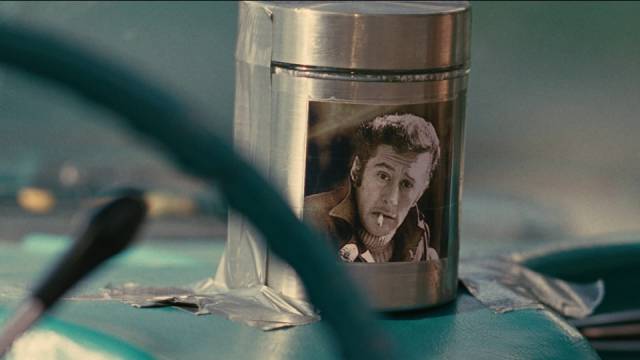
It begins with Pete in the last few days before retiring from his job as a Canada Post mail carrier in Vancouver; he receives news that Joey, diagnosed with lung cancer, has died during surgery. A friend of Joey’s hands him several items and a final request – a series of envelopes to be opened in sequence, some money to fix up the old convertible, and the task of taking Joey’s ashes back to Nova Scotia to be scattered in the Atlantic. Now retired, Pete heads back East, reminiscing on the road about his friendship with Joey (courtesy of clips from the original movie).
His first assignment is to deliver a letter to Betty on Toronto. Although she initially doesn’t want anything to do with him, her friend Selina (Chernin), who has fond memories of Pete despite having been rejected by him, persuades her to listen. In the letter Joey offers an explanation for why he abandoned her and her unborn child. That child, Betty Jo (Kathleen Robertson), now a woman in her late thirties, has her own issues which have prevented her from forming any lasting relationships. With only one memory of meeting her father when she was ten, she persuades Pete to take her with him to Nova Scotia, hoping to learn something about Joey.
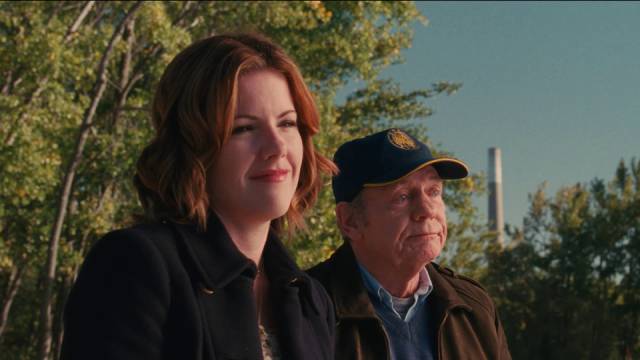
When they arrive, Pete has to visit lawyer Matt Burns (Anthony Lemke) and learns that he’s inherited what remains of Joey’s estate – and yet another letter, which fills in a lot of backstory which explains Pete’s character and actions in the original movie, with the possibility of resolution and a kind of late-life redemption. Pete discovers that Joey had committed an act of betrayal which had altered the course of his life and deprived him of what may have been the happiness which has always eluded him. In reconnecting with his lost past, discovering family he never knew he had, and seeing his friendship with Joey in a new way, Pete is also instrumental in helping Betty Jo resolve her own conflicted feelings, and perhaps even finally discovering Mr. Right. If not for the excellent performances, all of this would be trite and cloying – as it is, it abandons the original film’s harsh open-ended aura of reality for a neatly contrived narrative closure.
I watched both films on Blu-ray, in a two-disk set released by Alliance in 2012. There was some criticism of the Goin’ Down the Road transfer. The film was shot on 16mm reversal stock, but the Alliance restoration frames it at 1.78:1, conforming to the widescreen TV frame. Although colours are vibrant and saturated, there are times when the framing is claustrophobically tight, cutting into characters’ faces uncomfortably. However, much of the film looks fine widescreen. I’m not sure what the original intention was (Shebib says nothing about it in his commentary), but a quick comparison with the image on Seville’s DVD, which uses the full 16mm image, suggests that at best it might have been cropped to 1.66:1, or better still just left full-frame. On the downside, colours on the DVD are more washed out, so neither option is ideal.
_____________________________________________
(1.) I’ve managed to find copies of both Rip-Off and Between Friends on-line, but the quality of both is very low, so I’m not sure whether I’ll actually get around to watching them. (return)
Comments